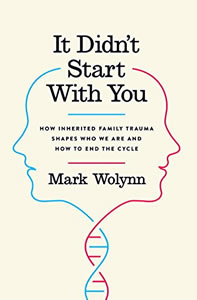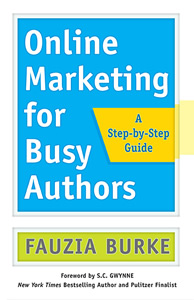 It Didn't Start with You: How Inherited Family Trauma Shapes Who We Are and How to End the Cycle
It Didn't Start with You: How Inherited Family Trauma Shapes Who We Are and How to End the Cycle
Viking, April 2016
A groundbreaking approach to transforming traumatic legacies passed down in families over generations, by an acclaimed expert in the field
Depression. Anxiety. Chronic Pain. Phobias. Obsessive thoughts. The evidence is compelling: the roots of these difficulties may not reside in our immediate life experience or in chemical imbalances in our brains -- but in the lives of our parents, grandparents, and even great-grandparents. The latest scientific research, now making headlines, supports what many have long intuited -- that traumatic experience can be passed down through generations. It Didn't Start with You builds on the work of leading experts in post-traumatic stress, including Mount Sinai School of Medicine neuroscientist Rachel Yehuda and psychiatrist Bessel van der Kolk, author of The Body Keeps the Score. Even if the person who suffered the original trauma has died, or the story has been forgotten or silenced, memory and feelings can live on. These emotional legacies are often hidden, encoded in everything from gene expression to everyday language, and they play a far greater role in our emotional and physical health than has ever before been understood.
As a pioneer in the field of inherited family trauma, Mark Wolynn has worked with individuals and groups on a therapeutic level for over twenty years. It Didn't Start with You offers a pragmatic and prescriptive guide to his method, the Core Language Approach. Diagnostic self-inventories provide a way to uncover the fears and anxieties conveyed through everyday words, behaviors, and physical symptoms. Techniques for developing a genogram or extended family tree create a map of experiences going back through the generations. And visualization, active imagination, and direct dialogue create pathways to reconnection, integration, and reclaiming life and health. It Didn't Start With You is a transformative approach to resolving longstanding difficulties that in many cases, traditional therapy, drugs, or other interventions have not had the capacity to touch.
hardcover | ISBN: 9781101980361 | Publication Date: April 2016
Reviews:
"Mark Wolynn does a masterful job of illuminating the ways in which our ancestors' unresolved suffering, often unknown to us, disables us and binds us painfully to them. He gives us the tools and skills — an approach that combines understanding, imaginative dialogues, and compassionate reconnection -- to free and heal
ourselves."
-- James S. Gordon, MD, author of Unstuck: Your Guide
to the Seven-Stage Journey Out of Depression
"It Didn't Start with You takes us a big step forward,
advancing the fields of trauma therapy, mindfulness applications,
and human understanding. It is a bold, creative, and compassionate
work."
-- Sharon Salzberg, author of Lovingkindness and Real
Happiness
"This groundbreaking book offers a compelling understanding of
inherited trauma and fresh, powerful tools for relieving its
suffering. Mark Wolynn is a wise and trustworthy guide on the
journey toward healing."
-- Tara Brach, PhD, author of Radical Acceptance
and True Refuge
"Mark Wolynn's extraordinary book cracks the secret code of
families and proves that you can go home again -- once you
understand how history made you. Full of life-changing stories,
powerful insights, and practical tools for personal healing, It
Didn't Start With You deserves a place on your bookshelf
next to Alice Miller's The Drama of the Gifted Child and
Dan Siegel's The Developing Mind. You'll never see your
family the same way again."
-- Mark Matousek, author of Ethical Wisdom
"Bridging both neuroscience and psychodynamic thinking, It
Didn't Start with You provides the reader with Mark Wolynn's
hard-earned toolbox of do-it-yourself clinical aids and
provocative insights."
-- Jess P. Shatkin, MD, MPH, Vice Chair for Education at
NYU Langone Medical Center's Child Study Center and author of Child
& Adolescent Mental Health
"After reading It Didn't Start with You, I found myself
immediately able to apply Mark Wolynn's techniques with my
patients and saw incredible results, in a shorter time than with
traditional psychotherapeutic techniques. I encourage you to read
this book. It's truly cutting edge."
-- Alexanndra Kreps, MD





